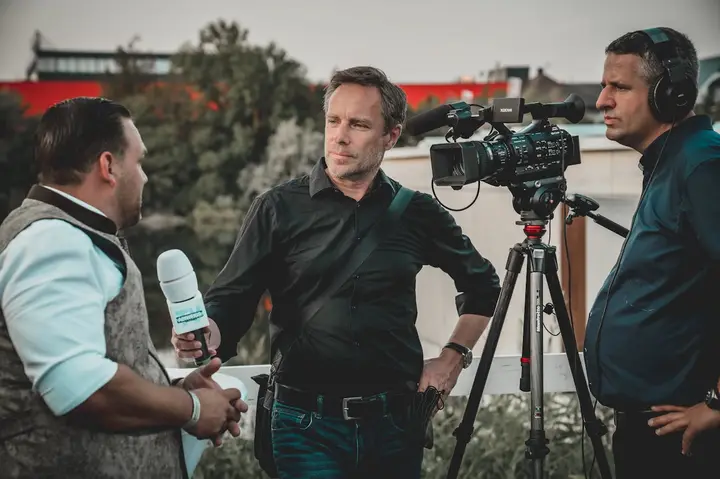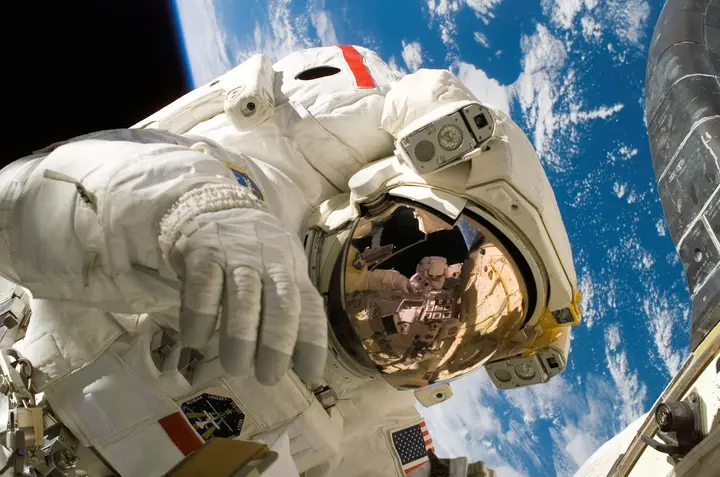80 Years Since the Failed Assassination of Adolf Hitler: Remembering the Resistance
Posted by: sunxin in News 4 months, 1 week ago
It's been 80 years since the daring plot to kill Adolf Hitler unfolded at Wolf's Lair, Hitler's headquarters in present-day Poland. Today, Germany commemorates the uprising at the Resistance Memorial Center in Berlin. President Frank-Walter Steinmeier laid a wreath in memory of those involved in the attempted coup against the Nazi dictator on July 20th, 1944. Chancellor Olaf Scholz said the resistance was a reminder not to resign in the face of history. But what if the plot had succeeded? And what does the legacy of the resistance mean for us today?
Bangladesh Protests Escalate Over Contentious Job Quota System
Posted by: sunxin in News 4 months, 1 week ago
The streets of Bangladesh have been ablaze with protests, as students and activists demand changes to a controversial job quota system. Despite universities agreeing to a government request for indefinite closures, hoping to lower the temperature of the student-led protests, tensions remain high.
The Escalating Political Violence: A Global Phenomenon
Posted by: sunxin in News 4 months, 1 week ago
In recent years, we have witnessed a disturbing trend of political violence emerging in Western democracies. From the attempted assassination of Slovakia's Prime Minister to the shocking shooting targeting Donald Trump, it seems that the once unimaginable acts of political violence are becoming increasingly commonplace.
Ursula von der Leyen's Vision for a Stronger, More Unified Europe
Posted by: sunxin in News 4 months, 1 week ago
As Ursula von der Leyen secures a second term as president of the European Commission, the European Union (EU) finds itself at a crossroads. Von der Leyen's reelection, with a comfortable majority of 401 out of 77 votes, ensures continuity in leadership and stability within the 27-nation bloc. But what lies ahead for the EU under her stewardship?
Dozens dead in violent clashes in Bangladesh | DW News
Posted by: sunxin in News 4 months, 1 week ago
Please refer to relevant websites for more information, and feel free to ask me any other questions.
China's Economic Challenges and the Role of the Third Plenum
Posted by: sunxin in News 4 months, 1 week ago
When China's ruling elite gathered in Beijing for the long-awaited Third Plenum, all eyes were on how they would address the country's economic challenges. Would bold reforms be announced to steer the world's second-largest economy through troubled waters? Or would stability be prioritized in the face of multiple crises, including a real estate meltdown, high youth unemployment, surging government debt, and complex trade and geopolitical tensions?
China's Economic Crossroads: Will the Third Plenum Deliver Bold Reform?
Posted by: sunxin 4 months, 1 week ago
、As China's ruling elite convene in Beijing for the long-awaited Third Plenum, all eyes are on whether significant economic reforms will emerge. With the world's second-largest economy facing multiple challenges, from a real estate crisis to high youth unemployment, government debt, and trade and geopolitical tensions, the need for bold action is urgent.
Britain's new prime minister calls for deeper cooperation with European partners | DW News
Posted by: sunxin in News 4 months, 1 week ago
Please refer to relevant websites for more information, and feel free to ask me any other questions.
The Complexities of a Possible Trump Presidency for Germany
Posted by: sunxin in News 4 months, 1 week ago
Imagine being in Milwaukee, ahead of the Republican National Convention, and stumbling upon a conversation about Germany's preparedness for a possible Trump presidency. Intriguing, isn't it?
Germany's West Africa Diplomacy: Strengthening Ties Beyond Charity
Posted by: sunxin in News 4 months, 1 week ago
With migration and security being top concerns in Germany, Foreign Minister Alena Bok recently embarked on a diplomatic mission to West Africa. This strategic move aims to bolster Berlin's relationships with key partners in the region, specifically targeting Sagal and Ivory Coast. But is this merely a charity gesture, or does Germany have deeper interests at play?
Recent Posts
- Tragedy Unfolds: The Heartbreaking Attack at Mogadishu's Leo Beach
- Clash in Liverpool: The Battle Between Anti-Racism and Anti-Immigration
- Tragedy Unfolds: Kerala's Heartbreaking Battle with Landslides
- Tragedy in Tarim: A Glimpse into the Aftermath of Israeli Aerial Strikes
- The Tragic Attack on Hamama School: A Story of Innocence Lost in Shik Radwan
Categories
- Official Announcement (3)
- News (1653)
- 新闻 (28)
- Technology (300)
- 科技 (235)
- 科普 (418)
- Science (409)
- 公开课 (180)
- MOOC (183)
- Business (36)
- 揭秘 (143)
- Mysteries (124)



